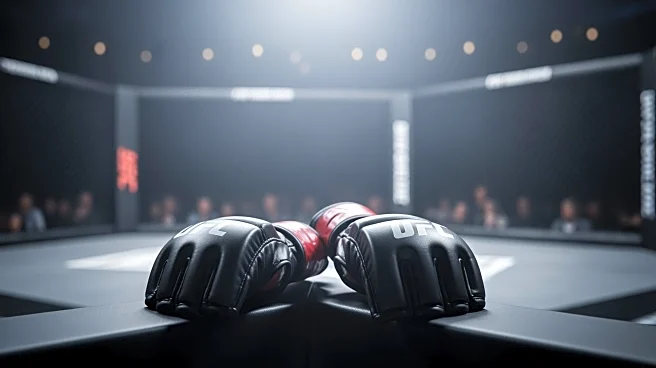What's Happening?
Reinier De Ridder's coach, Harun Ozkan, made the decision to end the UFC Vancouver main event between De Ridder and Brendan Allen after the fourth round. De Ridder, a former ONE FC champion, was struggling
to maintain his performance throughout the fight. Ozkan, who has been with De Ridder for most of his career, decided to pull his fighter out to prevent further damage. This decision is unusual in the context of MMA, particularly in the UFC, where fighters typically continue unless physically unable to do so. Ozkan explained his decision on social media, emphasizing his responsibility to protect his fighter's health over the desire to win or please fans.
Why It's Important?
The decision to end the fight early highlights the ongoing debate in combat sports about the balance between competitiveness and athlete safety. Ozkan's choice underscores the importance of prioritizing health over potential victory, a stance that could influence coaching strategies and fighter welfare policies in the UFC and other MMA organizations. This incident may prompt discussions on the ethical responsibilities of coaches and the need for regulations that protect fighters from unnecessary harm. The move could also impact De Ridder's career trajectory, as it emphasizes recovery and long-term health over immediate competition results.
What's Next?
Following the fight, De Ridder's team plans to focus on recovery and evaluate their strategies before returning to competition next year. This period of reflection and recuperation may lead to adjustments in training and fight preparation to enhance performance while safeguarding health. The UFC and other stakeholders might also consider reviewing their policies on fight stoppages to ensure athlete safety is consistently prioritized. Fans and analysts will likely continue to debate the decision, potentially influencing public perception of fighter welfare in MMA.
Beyond the Headlines
This event raises broader questions about the culture of toughness in combat sports and the pressures athletes face to continue fighting despite potential health risks. It challenges the notion that enduring physical punishment is a necessary aspect of the sport, advocating instead for a more humane approach to competition. The decision could inspire other coaches to adopt similar protective measures, fostering a shift towards prioritizing athlete well-being in the industry.











